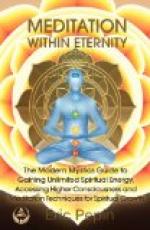Says Nagasena, the Buddhist sage:
“He who is not free from passion experiences both the taste of food, and also the passion due to that taste; while he who is free from passion experiences the taste of food but no passion.”
Hence we discover that the state of Illumination, samadhi, or mukti, according to the most enlightened and logical interpretation, means a calm and peaceful consciousness, undisturbed by passion. But we should not interpret the word “passion” as here used, to mean absence of all sensation, feeling or knowledge.
There is absolutely no arbitrary interpretation or translation of the words of Buddha, nor can there be. The same is true of Confucius; of Mohammed; of Krishna; of Laotze; of Jesus; of all the teachers and philosophers of the world.
Who of you who read these words has not listened to debates and endless discussions as to what even so modern a writer as Emerson or Whitman, or Nietzche or Kobo Daisi, or some other, may have meant by certain statements?
In the Samyutta Nikaya we read:
“Let a man who holds the Self clear, keep that Self free from wickedness.”
This does not imply annihilation of identity, absorption of consciousness, although it has been so interpreted by many students. On the contrary, instead of losing consciousness of the Self (which is not merely the personality), we find the Real Self.
As an adult we realize more consciousness than we do as infants. Not that we possess more consciousness. We cannot acquire consciousness as we accumulate things. We can not add one iota to the sum of consciousness, but we can and do uncover portion upon portion of the vast area of consciousness which is.
Says the Dhammapada:
“As kinsmen, friends and lovers salute a man who has been long away and returns safe from afar; in like manner his good deeds receive him who has done good, and who has gone from this world to the other, as kinsmen receive a friend on his return.”
If this state of mukti were annihilation of individual consciousness it would hardly be an incentive to do good deeds, except that good deeds in themselves bring happiness, but if the bringing of happiness did not also bring with it a larger consciousness, it would not be true happiness, but merely a condition, and conditions are always subject to change.
“It is not separateness you should hope and long for; it is union—the sense of oneness with all that is, that has ever been and that can ever be—the sense that shall enlarge the horizon of your being, to the limits of the universe; to the boundaries of time and space; that shall lift you up into a new plane far beyond, outside all mean and miserable care for self. Why stand shrinking there? Give up the fool’s paradise of ’This is I’; ‘This is mine.’ It is the great reality you are asked to grasp. Leap forward without fear. You shall find yourself in the ambrosial waters of Nirvana and sport with the Arhats who have conquered birth and death.”




